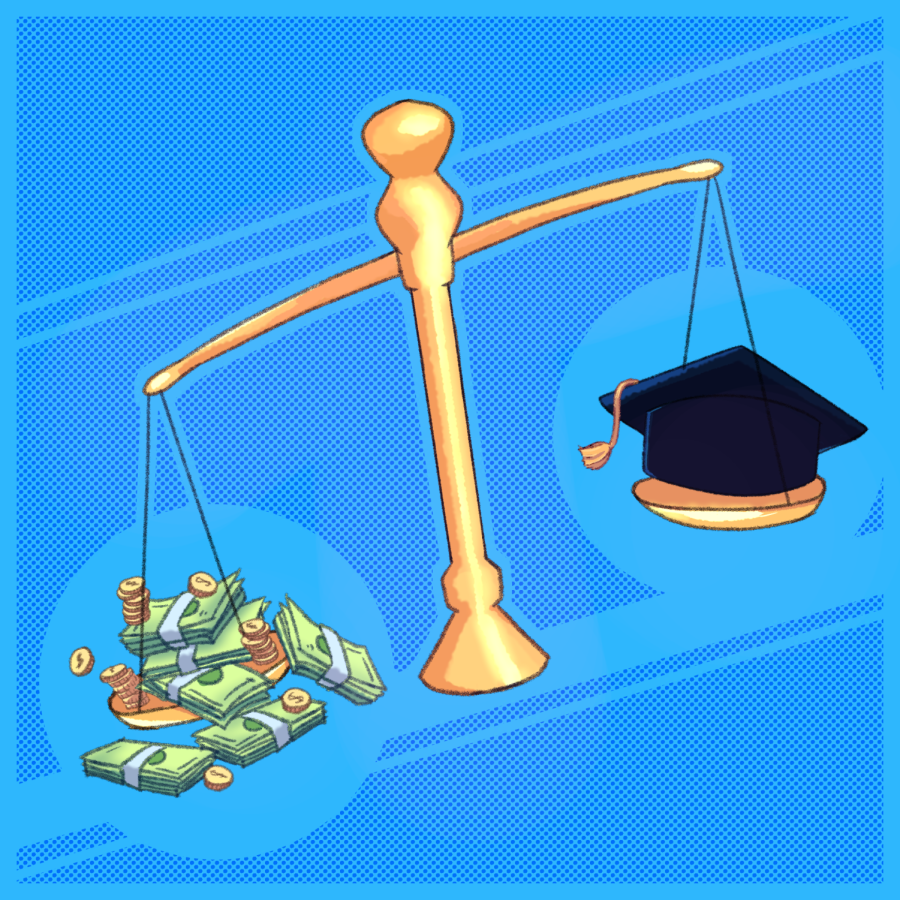Supreme Court hears cases challenging Biden’s student loan forgiveness program
March 21, 2023
The U.S. Supreme Court heard two cases at the end of last month that challenge President Joe Biden’s program to forgive up to $20,000 of student loans for those who qualify, giving insight to how the justices may rule on the legality of the plan.
The two cases, Biden v. Nebraska and Department of Education v. Brown, claim the program should be struck down as the Biden administration and Secretary of Education Miguel Cardona overstepped their authority in attempting to forgive student loans and implemented the plan without proper procedure. Following oral arguments for the two suits, decisions are expected to be released by the end of June.
There are two questions in these cases, said Stephen Vladeck, the Charles Alan Wright Chair in Federal Courts at the UT Law School. The first is whether or not the states and individuals who brought the lawsuits have legal standing to challenge the program in the first place.
The second deals with whether Cardona exceeds his authority by forgiving student loans under the Higher Education Relief Opportunities for Students Act of 2003, which the Biden administration claims gives him the power to implement the program. The act gives the Secretary of Education authority to “waive or modify any requirement or regulation applicable to the student financial assistance programs” in response to a national emergency.
Vladeck said the courts need concrete evidence showing that the prospects and future applications of a student loan program have already injured a party to establish legal standing to overturn it.
“You have to show that those injuries were caused by the defendant, and you have to show that the relief the plaintiffs are seeking would actually redress those injuries,” Vladeck said.
Were the Supreme Court to find that neither party in each case had standing to challenge Biden’s program, both lawsuits would be dismissed and the program would be upheld on the grounds that they could not make a decision, Vladeck said.
Vladeck said that although Cardona is drawing on authority expressly given to him through the HEROES act, the Supreme Court must determine whether forgiving student debt falls under the acts terms “waive or modify.” If the Supreme Court decides it does not, it would mean the program exceeds Cardona’s power, and to continue, it would then require Congress to specifically state he can forgive student loans.
“Even though the statute literally says ‘waive or modify’ (student financial assistance) there was a lot of effort by the conservative justices to read those words to not necessarily mean what it looks like they mean … and to suggest that the ‘waive or modify’ (wording) contemplates some action that is smaller and more modest than forgiveness,” Vladeck said.
Student Government President Leland Murphy was in Washington D.C. for the Big 12 on the Hill Conference while oral arguments were taking place.
“(Student loan forgiveness) is something that students don’t want limited and actually want expanded further,” said government senior Murphy. “It’s going to be a huge detriment to student’s material needs and the economy if (the Supreme Court) ends up overturning the forgiveness program.”
According to Vladeck, if the Supreme Court decides there is standing in the cases and considers whether the secretary of education has the power to forgive student loans under the HEROES Act, there is a strong possibility the program will be struck down.
“I think it’s quite likely (the decision) is going to be very close and that’s it going to be pretty much right down the expected (ideological) lines,” Vladeck said. “We’re looking at either a six-three or five-four loss for the Biden administration or a five-four win.”













